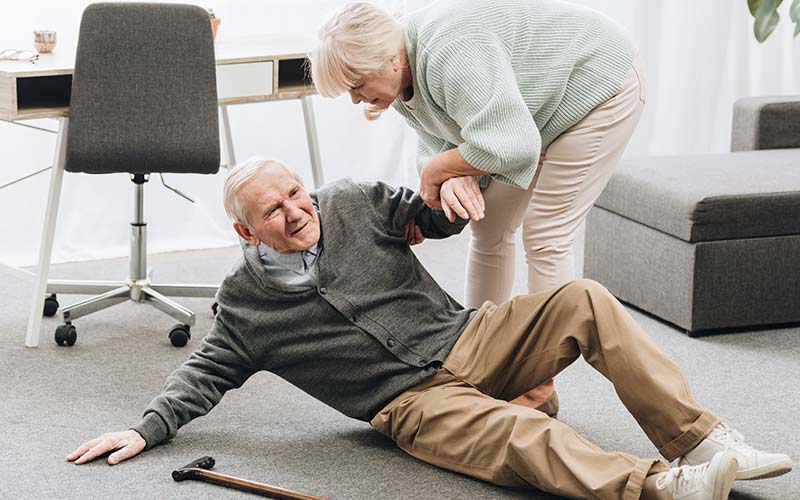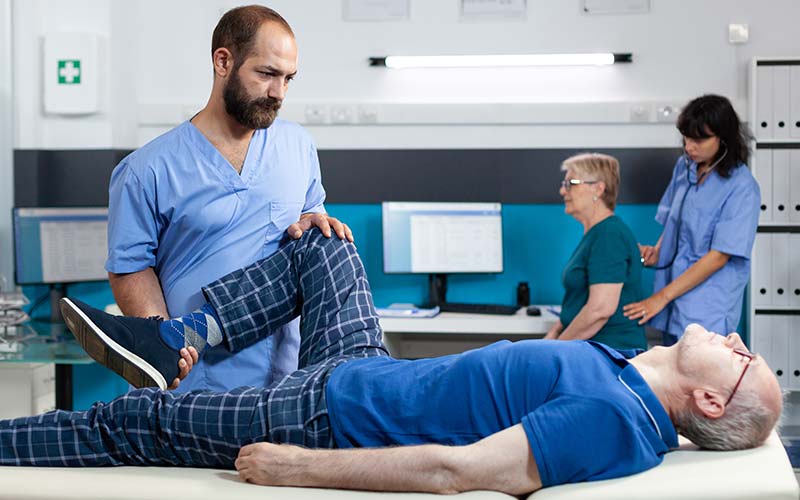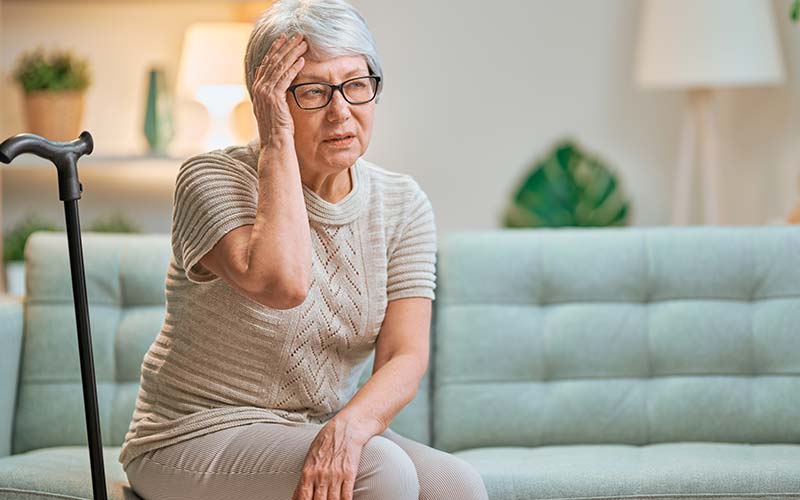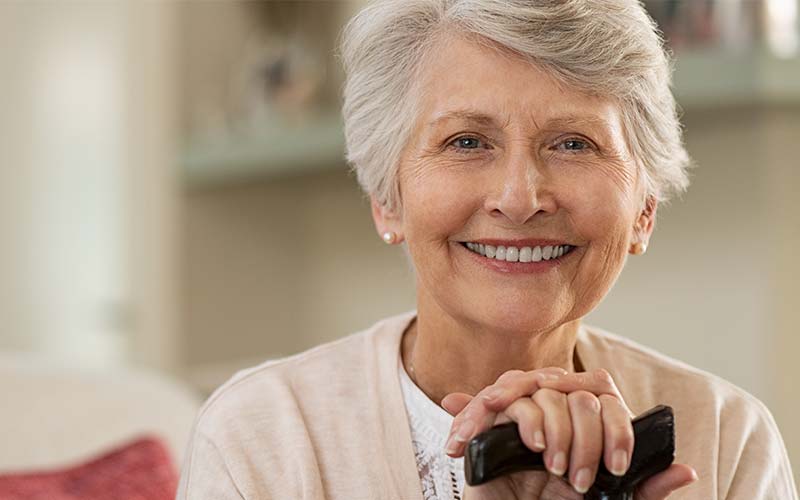A fall can be a devasting blow to a senior’s health
Maybe this has happened in your family, to your mom, dad, grandparents or someone close to you. Or maybe you’ve heard about it from a close friend. In any event, the chances are high you’ve heard about a healthy, but aging loved one, having a serious fall and the quality of life takes an immediate downturn – or worse.
Unfortunately, falls are far too common in our elderly and they are one of the top reasons assisted living goes from something to consider later on, to an immediate need. We’ll discuss two of the most health impacting injuries in this article: hip fractures and head injuries.

Why is a hip fracture so dangerous?
Falls amongst our aging loved ones often lead to broken hips and hip injuries are harder to recover from, especially when they lead to infection. Because the hip joint is complicated, and we rely upon it to carry our body weight, the loss of use renders us immobile.
The hip joint is a ball-and-socked joint is surrounded by several muscles and ligaments working to keep the femoral head (or ball) in place within the acetabulum (socket). The muscles that surround the joint are rotator muscles and they are there to keep your hips stabilized, allowing you to walk, run and do simple things like sit down.
Bone fractures in seniors are more common simply due to the fact that bone density and muscle mass decline as we age. Another common factor may be Osteoporosis, in which bones become weaker and more brittle. These two factors alone make it increasingly likely that a fall will result in a fracture, or worse.

What Complications Affect or Stop Recovery?
As if the fracture is not enough, other complications can easily contribute to a slow recovery time, leading to greater likelihood of serious health impact or even death.
Old age, a previous injury to the hip, cognitive decline, heart disease all hinder the recovery process due to several factors, such as a compromised immune system. According to BMC Geriatrics in their three-year study, “Among nursing-home residents with hip fracture, the most common causes of death were infection, dementia and cardiac events.”
What are the symptoms to look for?
First of all, any fall involving a senior should be addressed immediately. It should be looked at by a medical professional right away since the symptoms may take some time to appear.
That being said, as loved ones, we are often not made aware of the injury until much later, when symptoms become more bothersome and, through a little detective work, we discover the cause of the symptoms.
If you know what to look out for, you can better spot these symptoms and find out a little sooner than you normally would if a fall has caused an injury.
- Pain in the upper thigh or groin area – can be apparent when they are walking, sitting
- Loss of range of motion in hips and legs
- The area is tender to the touch
- Walking appears uneven
- Bruising in the affected area

Why is a senior head injury more dangerous?
A brain injuries is a serious concern for anyone. For those who are 65 and older, the risk is greater due to several factors of aging. Falls account for approximately one-third of head injuries in seniors and are especially serious in seniors as they can more easily cause bruising, swelling and bleeding around the brain.
According to Science Direct, “The data show that the age is an important independent risk factor in patients with mild head trauma. In particular age over 75 is a risk factor for worse outcomes such as intracranial bleeding, hospitalization and readmission.”
Because senior brain injuries occur due to a force of impact, factors such as lessened bone density or osteoporosis play a significant role in the severity and danger. Much like a hip fracture, an impact is more likely to cause a fracture and the impact from the fall is more likely to cause an injury to the brain.
What are the symptoms to look for?
This is one you’ll want to watch out for very carefully, as symptoms from head injuries do not often present themselves right away.
Here are some signs of head injury to keep an eye out for:
- Headache
- Dizziness
- Vertigo
- Nausea and/or vomiting
- Loss of balance
- Unusual sensitivity to light and noise
- Double, or blurred, vision
If you notice, or hear your loved ones complaining about, any of the symptoms mentioned above, even if the fall was described as minor, or “no big deal,” it is imperative to have them seen by their doctor as soon as possible. Catching these symptoms as soon as possible can help the recovery process and also allow you to take quick action of additional care, such as assisted living, geriatric care or rehabilitation is necessary.
In a later article, we’ll discuss how you can help prevent these falls with your loved ones. As with anything, prevention is the best way to keep them healthy and thriving.

